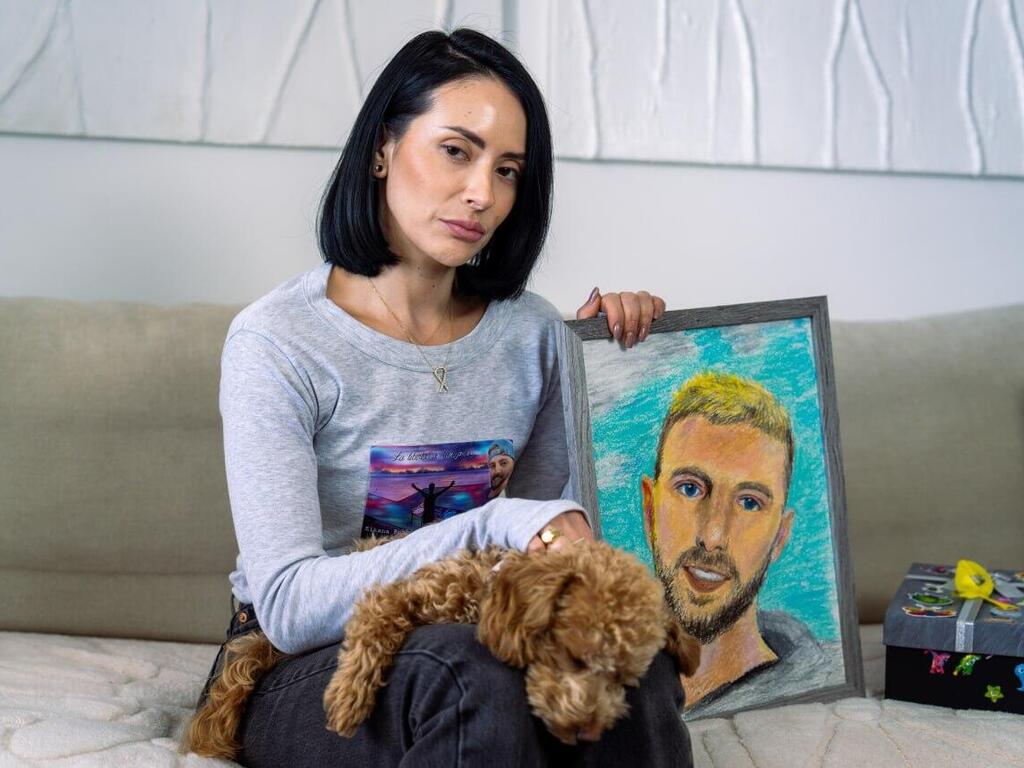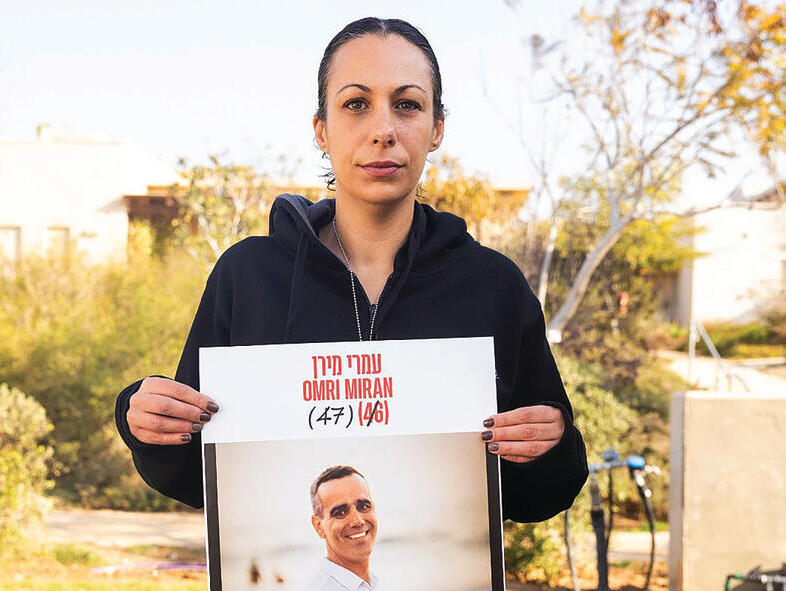Getting your Trinity Audio player ready...
Nearly a year and a half after their fathers were kidnapped by Hamas, the hostages' children are still living in uncertainty, not knowing when or if they will see them again. For these families, every day is a battle to hold on to hope, even as time passes and answers remain out of reach.
Among those waiting is four-year-old Re'em David. His father, Elkana Bohbot, was taken captive on October 7. His mother, Rivka, describes the daily struggle to keep him hopeful.
"What does it mean to live without a father? It means telling my son every day that Daddy will come back, so he doesn’t lose hope," she said. "It means explaining that people are looking for him, listening when he cries that he misses him. When he sees a plane in the sky, he asks, ‘Bring my daddy back.’ He’s afraid to be left alone, afraid that I will ‘go to Gaza’ too. He feels his father’s absence in everything."
Get the Ynetnews app on your smartphone: Google Play: https://bit.ly/4eJ37pE | Apple App Store: https://bit.ly/3ZL7iNv
Despite his young age, Re'em holds onto his father’s memory. "He says, ‘I love summer like Daddy. I like warm water like Daddy.’ He even saves up money for him, convinced that someone must have stolen his father’s wallet. On Family Day at kindergarten, he drew us—Elkana in bright colors, and the rest of us in black and white, because he knows we are sad."
But Rivka refuses to let go of hope. "I know Elkana is holding on. He knows he has a wife fighting for him, a son waiting for him. He will be shocked to see how much his child has grown. No one will take my hope away."
Lishay Miran-Lavi faces a similar struggle with her daughters, Roni and Alma. Their father, Omri Miran, was kidnapped before their eyes.
"I do everything I can to make sure my daughters live with joy, despite the pain," she said. "But the reality is that Roni and Alma were also hostages. They saw their father taken from them, and it left deep scars. Roni is three and a half, and she constantly talks about her father. She remembers every detail of that day, who was there, why they came."
"Alma never even got to know him. She was only six months old when she lost the basic right to grow up with her father. And in a way, they are still stuck in that day," Lishay said. "But I tell myself, and I know—Omri will come back, on his own two feet. There is no other option. We must bring him home. He has two daughters waiting for him. We must bring them all home."
Children's rights are being violated
Legal experts argue that beyond the emotional toll, these children’s rights are being systematically violated under international law. A new legal document submitted by Prof. Dana Pugach and attorney Sheli Aviv-Yani highlights how the hostage crisis has deprived these children of their fundamental protections.
"The impact on these children is not just emotional—it represents a continuous breach of their basic rights," the document states, citing the United Nations Convention on the Rights of the Child and other international treaties. It asserts that Israel has a legal obligation to recognize these children’s rights and prioritize them in efforts to secure the hostages’ release.
3 View gallery


Rally in Tel Aviv calling for the release of the remaining hostages
(Photo: Moti Kimchi)
"This is not just a matter of sympathy or compassion," said Prof. Pugach. "It is a concrete legal duty of the state to protect these children, who have become indirect victims of terrorism. The rights of these children must be at the forefront of negotiations."
Pugach noted that hostages are often categorized into different groups—women, the elderly, the sick, and others—but the fathers of young children have not received enough attention.
"After nearly a year and a half in captivity, none of the hostages are in good health. But certain groups require special focus, such as fathers with young children," she said. "There must be a clear message—any deal to bring them home must also consider the rights of their families, especially their children."
While international law strongly protects children’s rights, Pugach said, the responsibility to uphold them does not lie with Hamas, but with Israel and the global community.
"My expectation is not that Hamas will suddenly recognize children’s rights," she said. "It is that Israel will uphold its obligation to these children, and that the international community will acknowledge the need to protect their interests. These legal efforts are also a way for families to reclaim some control over a situation that has left them feeling powerless."



